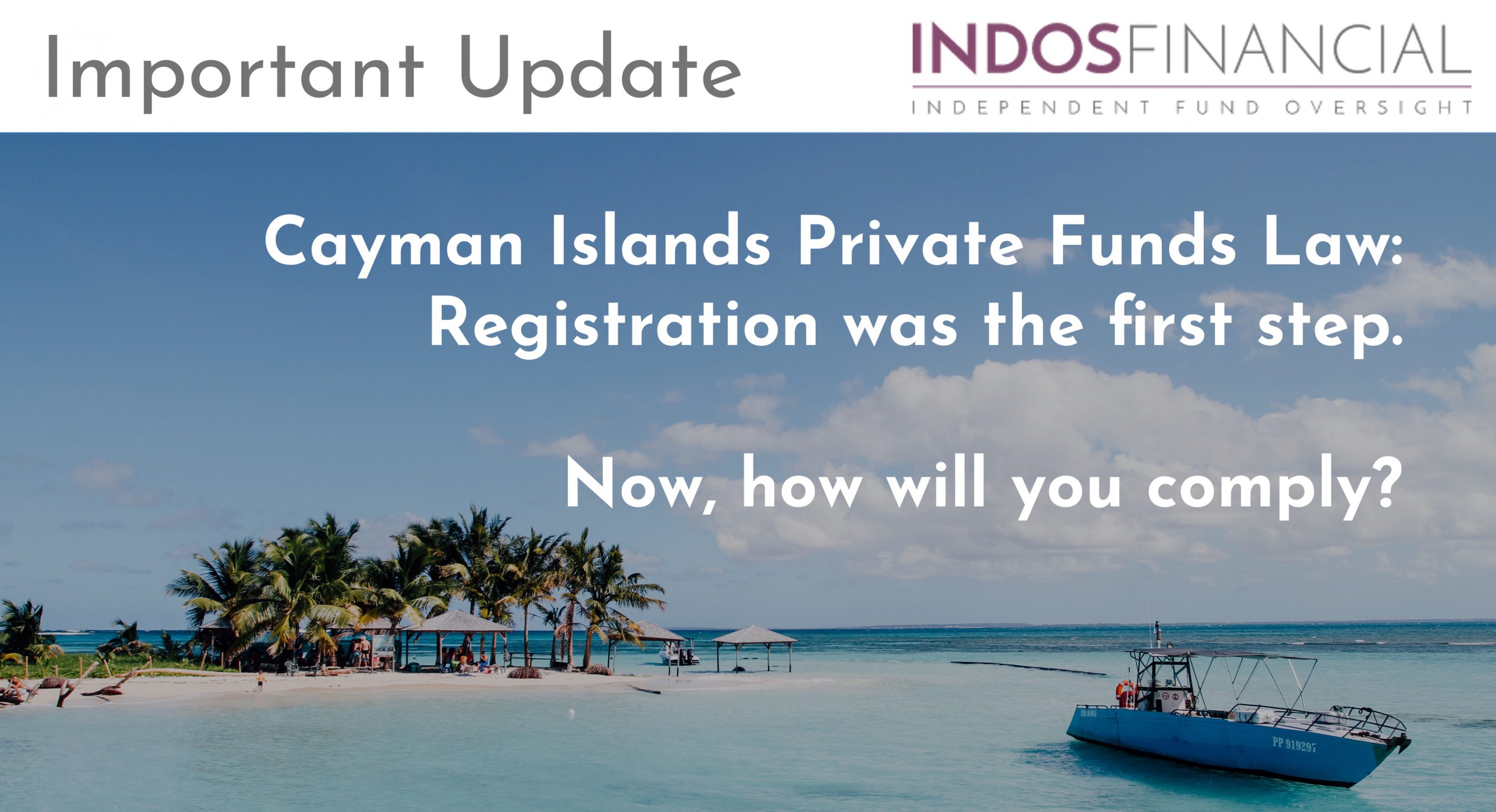The Cayman Islands Private Funds Law 2020 (CPFL) is now in full effect and, for the approximately 12,000 private equity, real asset and other private closed-ended funds that met the August 7, 2020 deadline to register with the Cayman Islands Monetary Authority (CIMA), attention will now turn to how best to comply with the ongoing operational requirements.
Many of the CPFL obligations are similar to existing requirements for CIMA-registered open-ended funds and may be familiar to the newly registered closed-ended funds.
Although the Cayman Islands Private Funds Law provides managers flexibility with regard to performing the functions internally or appointing a third party to carry them out, there is much to consider in determining the best approach for the fund. Although some guidance notes have been issued by CIMA, further guidance is expected to be issued in due course.
The key operating conditions that are unique to the CPFL are summarized below.
Key CPFL Operating Conditions Requirement | Options to Comply |
Valuation | |
| Funds must have appropriate and consistent procedures for proper valuation of assets. Valuations must be carried out with a frequency that is appropriate for the assets held and meets fund reporting obligations to investors. In any case, the frequency must be at least once a year. | Valuations may be carried out by either: an independent third party that is qualified to conduct valuations, an administrator, or the manager or operator of the fund (subject to being independent from portfolio management or the potential conflicts of interest must be identified, managed and monitored and disclosed to investors). If the function is handled in-house, CIMA may require verification by an independent third party. |
Safekeeping of Fund Assets | |
| Funds must appoint a custodian to: (i) hold the custodial assets (such as listed securities) and (ii) verify ownership/title to other fund assets. | Funds are not required to appoint a custodian if they notify CIMA that it is neither practical nor proportionate to do so, given the assets held. If the fund does not appoint a custodian, it must either appoint an independent third party to carry out title verification of non-custody assets, or title verification can be performed by the manager or operator, so long as the function is independent from portfolio management and potential conflicts of interest are identified, managed and monitored and disclosed to investors. |
Cash Flow Monitoring; | |
| Funds must appoint a party to (i) monitor the fund cash flows; (ii) ensure that all cash has been booked in cash accounts opened in the name, or for the account, of the private fund; and (iii) ensure that all payments made by investors in respect of investment interests have been received. | Funds can appoint an independent third party to perform this role, or the fund can rely on the manager or operator, so long as the function is independent from portfolio management, or conflicts of interest are identified, managed and monitored and disclosed to investors. If the function is performed in-house, the fund’s auditor must confirm that it was carried out throughout the year when approving the audited financial statements. If a party is not appointed, CIMA may require that a fund’s cash monitoring be verified by an independent third party. |
Considerations in determining the best approach
CIMA is under pressure to show a robust regime
The CPFL is one of several regulatory changes impacting Cayman Islands domiciled funds over the past two years. Like other offshore fund domiciles, the Cayman Islands is under international pressure to demonstrate it has a robust regulatory framework that can withstand scrutiny. In June, CIMA amended and expanded its Administrative Fines regime reinforcing the need for all operators of Cayman funds to understand and properly comply with their obligations.
In July, we saw last minute changes made to the CPFL to broaden its scope and clarify requirements around the identification and management of conflicts of interest, designed to ensure managers comply with the spirit not just the letter of the law. We expect similar changes will be introduced if funds should merely “check the box” on compliance with the operating conditions.
To create a program that is beyond “check the box” compliance, firms should consider the appointment of independent third parties to carry out these functions where it makes sense to do so. Firms that opt to handle any of the above functions in-house should ensure that the internal program is properly documented and evidenced and subject to regular independent compliance oversight.
There are opportunities to create efficiencies
The above operating conditions are similar to requirements in other regulatory regimes. Funds can create operational efficiencies by taking a holistic view on compliance across multiple jurisdictions. For example, Europe’s Alternative Investment Fund Managers Directive (AIFMD) regime requires similar operational functions, except that the AIFMD takes the extra step of requiring that the functions be carried out by a depositary. By appointing a depositary to comply with the CPFL, non-EU fund managers are only a small step away from complying with the depositary requirements that will enable them to market their funds in countries such as Germany and Denmark without relying on reverse solicitation.
Funds can also create efficiencies by using a service provider that is well versed in other Cayman Islands requirements such as the appointment of an Anti-Money Laundering Compliance Officer and Money Laundering Reporting Officer.
Funds and their managers can save time and money and reduce their risk by turning to independent third parties that have significant experience acting as outsourced AML officers under the Cayman Islands regime as well as experience carrying out the CPFL operating conditions.
Why INDOS
INDOS Financial is an independent fund oversight business for alternative investment funds, including closed-ended private equity, real estate, infrastructure, and debt funds, as well as open-ended hedge funds. With over $35 billion assets under oversight, INDOS has significant experience providing outsourced AML Officers as well as custody, cash flow monitoring and asset verification under the CPFL and AIFMD. INDOS is a trusted independent third party to over 100 Cayman Islands domiciled funds and is ready to help funds ensure compliance with the Cayman Islands Private Funds Law 2020 and AML Regulations.




